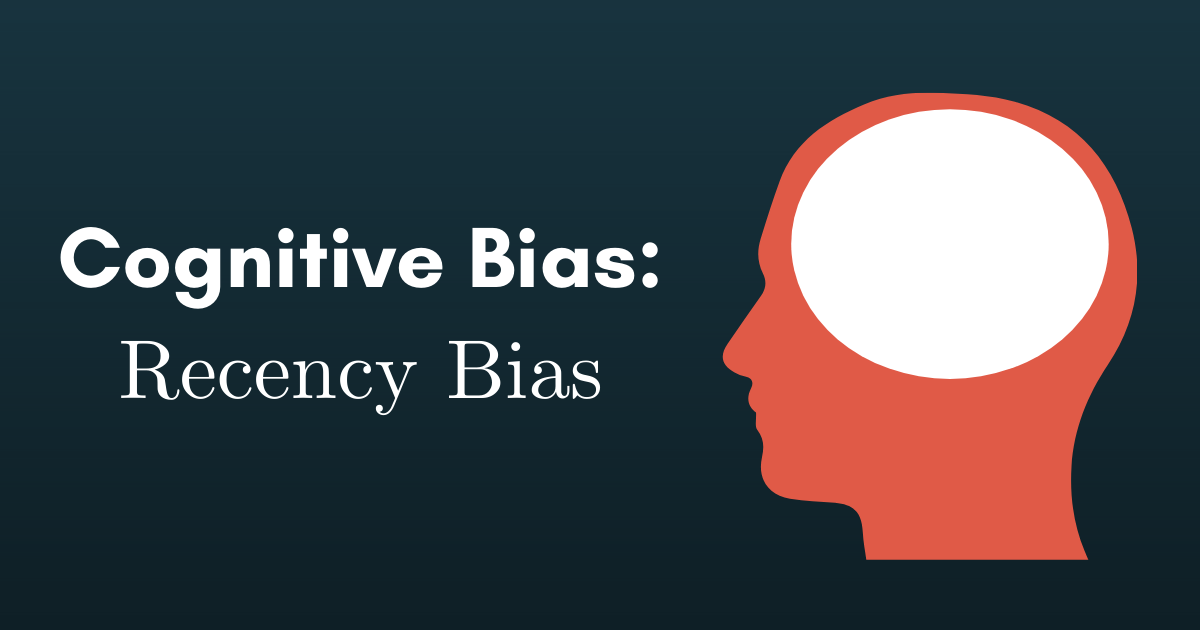This is the third cognitive bias covered on our blog so far, and this is one we see all the time as financial advisors. In short, recency bias is the tendency to think that what has happened recently is what will happen in the future. We assume that an investment that has gone up or down will likely continue to go up or down, that a team that has done well will continue to do well, and so on. In my opinion, this is one of the more potentially damaging biases. It can lead us to sell a security that has declined because we think it will go to zero, and it can lead us to buy a security because we think it’s going way up.
How do we deal with Recency Bias?
Here are three steps to combat this bias.
- Know that it exists
- Recognize that there are likely multiple outcomes
- Try to objectively access the odds of each outcome.
The third step is especially important, as it leads to another bias: the confirmation bias. We will address this cognitive bias in an upcoming post.
Related articles of interest:
- Tomorrow’s Market Probably Won’t Look Anything Like Today
- Is Recency Bias Influencing Your Investing Decisions?
- Defining Recency Bias

